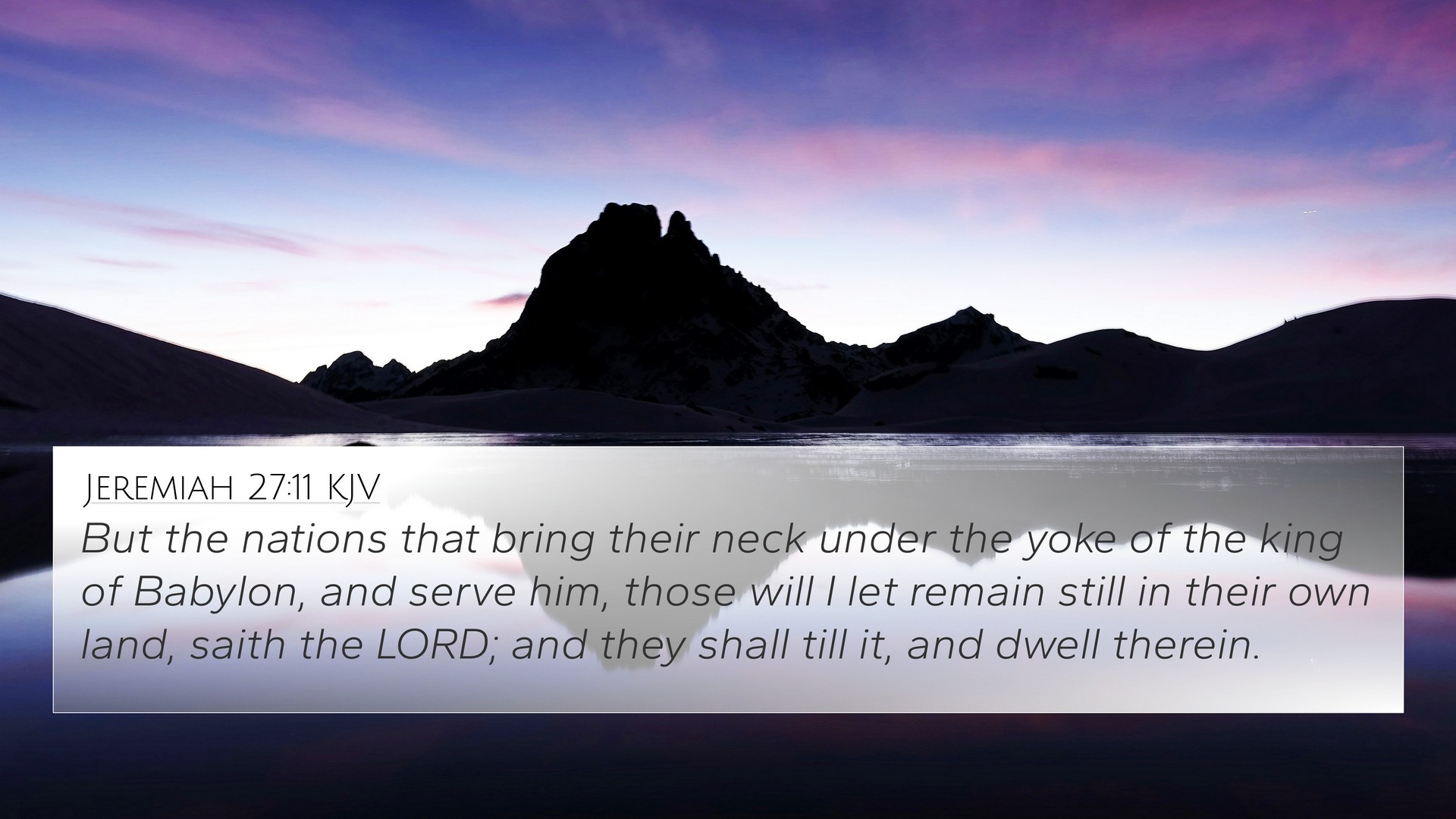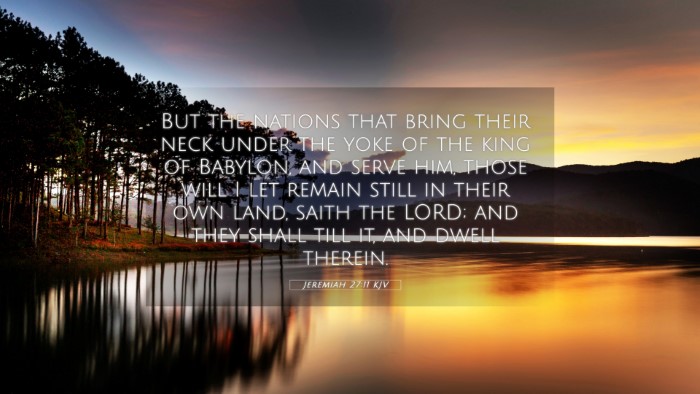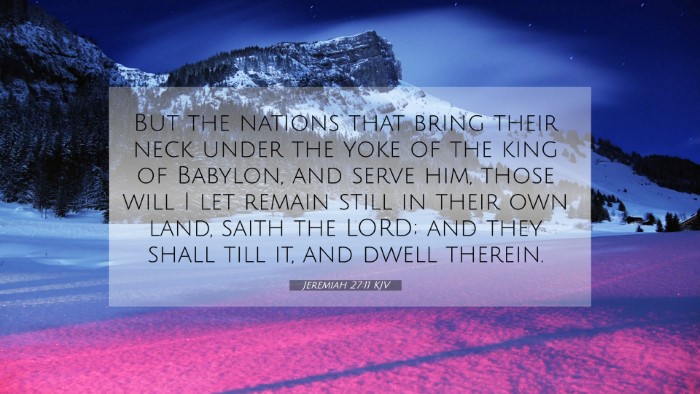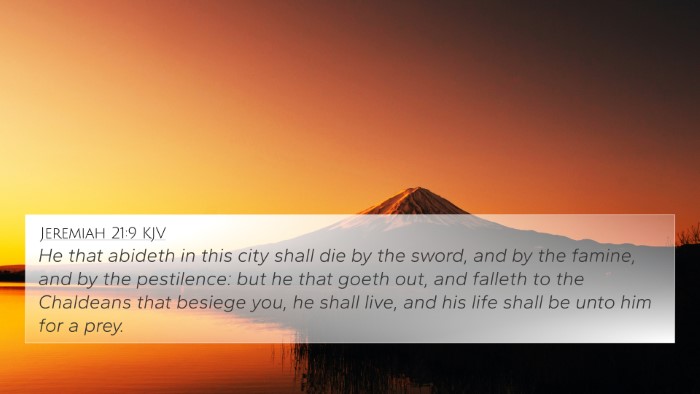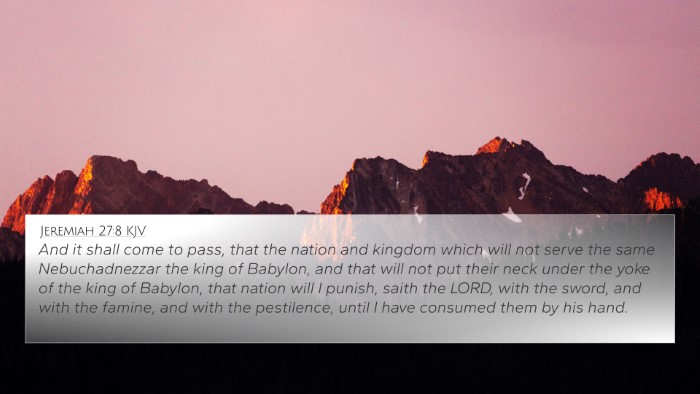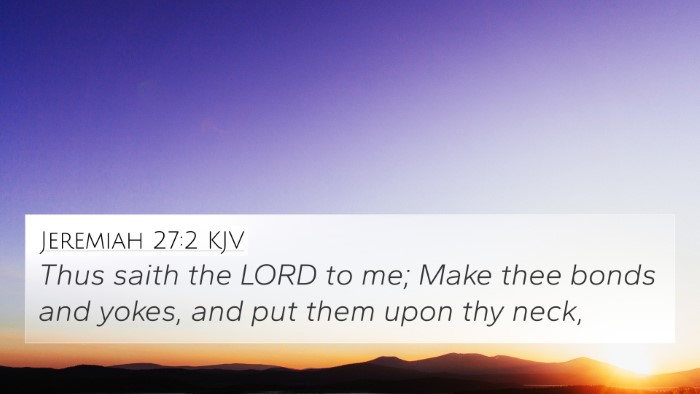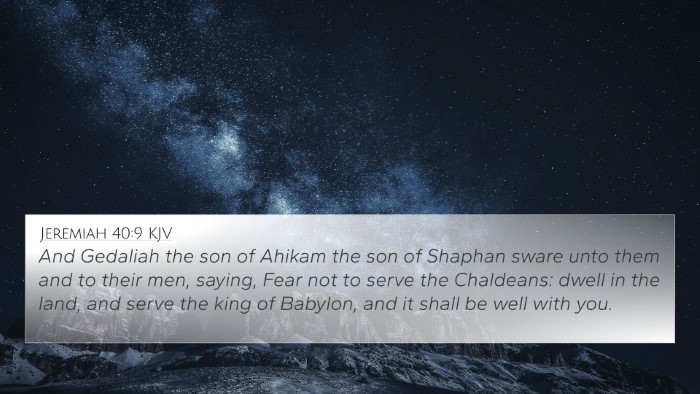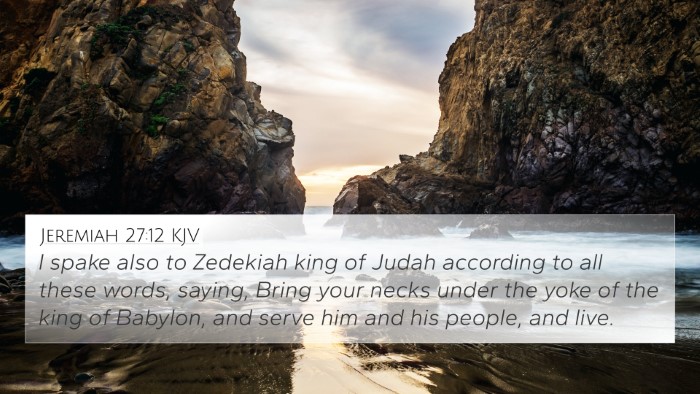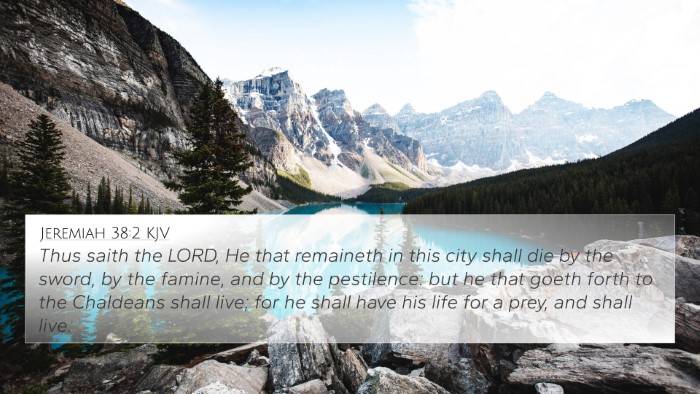Understanding Jeremiah 27:11
Jeremiah 27:11 states, "But the nations that bring their necks under the yoke of the king of Babylon and serve him, I will let them remain in their own land, says the Lord, and they shall till it and dwell in it." This verse holds significant meaning in the context of Jeremiah's prophecies, the geopolitical circumstances of the time, and God's intention for His people.
Contextual Background
The prophetic ministry of Jeremiah took place during a tumultuous period in Jewish history marked by the Babylonian exile. The Lord commands submission to Nebuchadnezzar, the king of Babylon, as part of His divine plan. This verse highlights the balance between human authorities and divine sovereignty, illustrating God's control over nations and His purposes despite the oppression His people faced.
Commentary Insights
-
Matthew Henry emphasizes the notion of yoke and servitude. He explains that accepting the yoke of Babylon is crucial for the survival of the nations involved. Henry suggests that this divine command serves both a warning and a comfort, reminding us of God's overarching plan even in dire circumstances.
-
Albert Barnes underlines the conditional aspect of God’s promise to allow nations to remain in their land. Barnes notes that obedience brings a measure of peace and stability. This reflects God's mercy and patience towards His people, offering them a chance to repent and align with His will.
-
Adam Clarke expounds on the theme of divine sovereignty evident in the passage. Clarke points out that God allows certain nations to prosper under foreign dominance as part of a greater purpose, illustrating that God’s control extends beyond Israel to the whole world, including empires and economies.
Bible Verse Cross-References
Jeremiah 27:11 connects to numerous other scriptures. Here are key cross-references that enhance understanding of its themes:
- Jeremiah 28:14 - The prophecy of bondage to Babylon reiterated.
- Lamentations 5:5 - A reflection of the hardships faced under foreign rule.
- Daniel 1:2 - God's sovereignty where He hands Jerusalem over to Nebuchadnezzar.
- Romans 13:1-2 - The New Testament view on submission to governing authorities.
- 1 Peter 2:13-14 - Encouragement to submit to human institutions for the Lord’s sake.
- Matthew 22:21 - "Render unto Caesar" teaches a principle of lawful obedience.
- Isaiah 40:23-24 - The idea that rulers are nothing compared to God's eternal reign.
Thematic Bible Verse Connections
This verse also prompts thematic connections, encompassing obedience to God amidst trials, divine intervention in worldly affairs, and the importance of faithfulness in serving God within the constraints of earthly powers.
Further examination of Jeremiah's prophecies reveals a continual call to repentance and faith, signifying that God's purposes are ultimately restorative, even when we require external forces for discipline and correction.
Tools for Bible Cross-Referencing
To explore connections between Bible verses effectively, consider employing various tools such as:
- Bible concordance for locating similar themes and words.
- Bible cross-reference guide for systematic studies.
- Cross-reference Bible study methods, which involve tracing themes across both testaments.
- Bible reference resources, which provide insights into historical context.
Conclusion
Jeremiah 27:11 serves as a rich text for reflection on the balance of divine sovereignty and human authority, reminding believers of God's omnipresence and purpose in the affairs of nations.
Engaging in comparative Bible verse analysis illuminates the interconnectedness of scripture and deepens our understanding of God’s word and His plans for His people throughout history.
